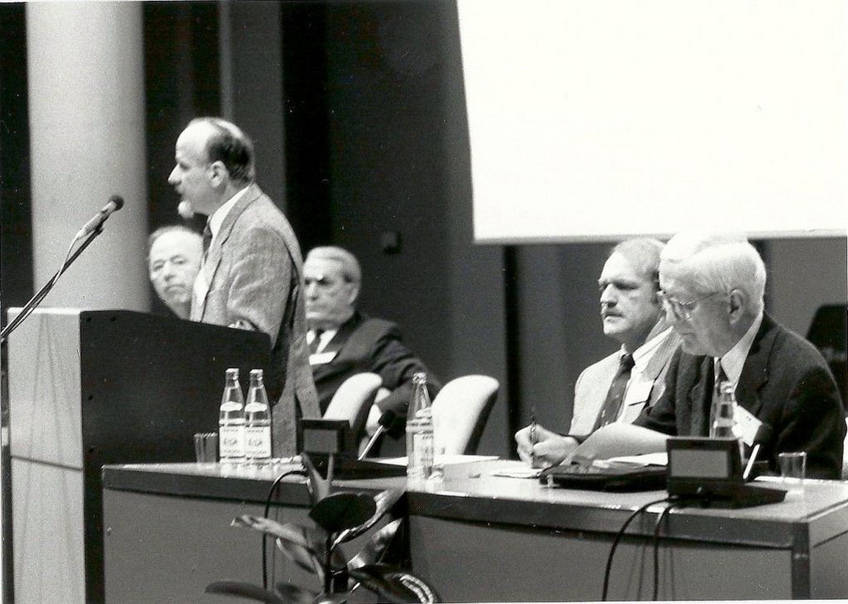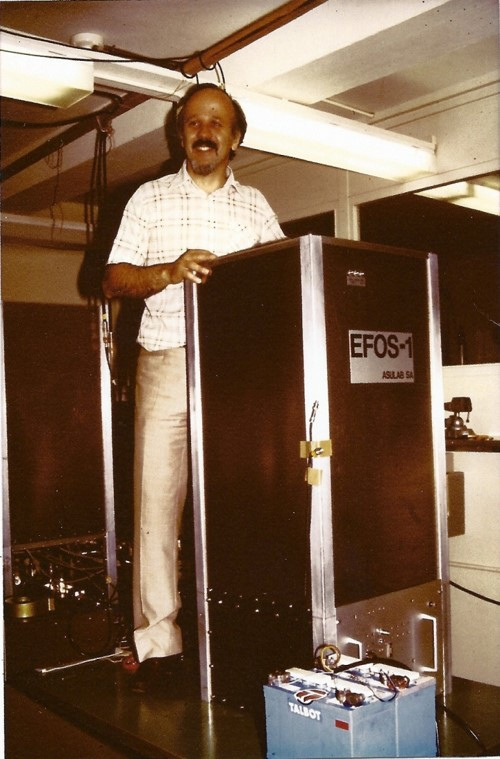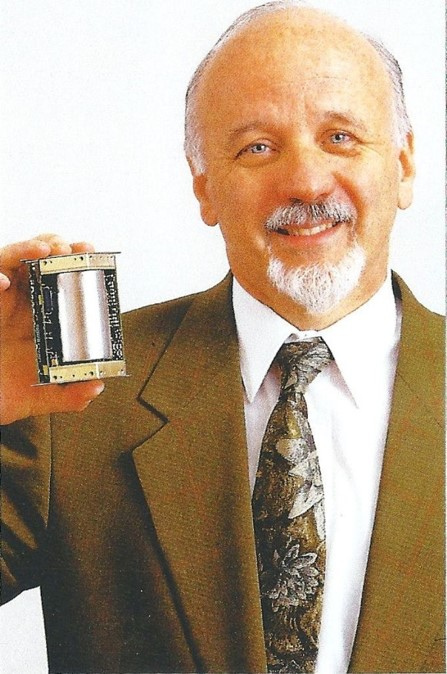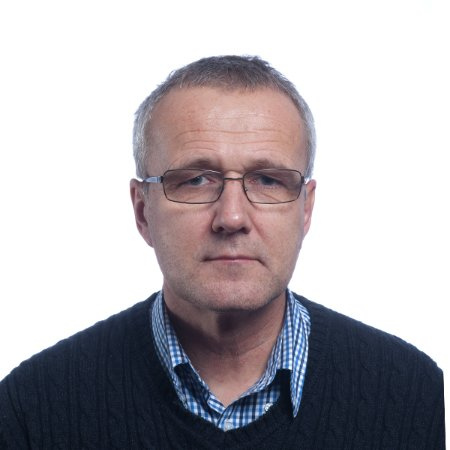

Prix Gaïa 2016 – Giovanni Busca and Pascal Rochat. Entrepreneurship category
Giovanni Busca, an independent consultant, was Professor and Director of the Neuchâtel Observatory from 1988-2001; Pascal Rochat is founder and CEO of the Neuchâtel-based company, SpectraTime.
The jury of the Gaïa Prize wanted to highlight the fundamental role played by Giovanni Busca and Pascal Rochat in enhancing the position of the Neuchâtel Observatory and in developing the industrial applications of their atomic clockmaking research.
The jury of the Gaïa Prize wanted to highlight the fundamental role played by Giovanni Busca and Pascal Rochat in enhancing the position of the Neuchâtel Observatory and in developing the industrial applications of their atomic clockmaking research.
Giovanni Busca
Giovanni Busca has a background in academia but is also passionate about industry; the Neuchâtel Observatory has enjoyed remarkable growth thanks to his entrepreneurial spirit and his vision. His success as a researcher at the Observatory also enabled him to realise one of his dreams in founding a spin-off company in 1995.

Giovanni Busca was born in Italy in 1939. After high school, he studied Physics at the University of Turin, where he obtained his PhD in Physics in 1964. Continuing his research activities, he then followed an academic career at the Laval University in Quebec, Canada, from 1970 to 1977, where he specialised in the field of atomic clocks. From 1977 to 1978, he worked on the hydrogen maser at the National Bureau of Standards in Boulder (Colorado, USA), and at Oscilloquartz SA in Neuchâtel. He continued his research at Oscilloquartz SA, filing several patents, and became Director of Research in Frequency Standards (GEF) at ASULAB SA; there he developed the first generation of terrestrial hydrogen masers which would be used worldwide in radio astronomy. He also pioneered R&D into clocks using rubidium and caesium under state-funded research contracts.
First Active H Maser produced by Oscilloquartz SA, 1982.

In 1988, he was appointed Director of the Neuchâtel Observatory and later became Associate Professor of the University of Neuchâtel. Giovanni Busca conducted intensive research, publishing over a hundred scientific articles and filing seven patents. His team gradually grew from 12 to 30 people; thanks to financing sourced 60% from contracts outside the Canton, Giovanni Busca has made a major contribution to R&D in atomic frequency standards:
- miniature rubidium clocks for terrestrial and space applications
- high-performance active hydrogen masers for use in radio astronomy
- passive hydrogen masers for terrestrial and space applications (GALILEO)
Passive H maser for Galileo
These three fields have been successfully applied in industry. The first of these fields led to the founding of a spin-off company in 1995 called TNT-Temex Neuchâtel Time (subsequently renamed SpectraTime) which employed two staff members from the Observatory (including Pascal Rochat, then Deputy Technical Director). SpectraTime later worked on the industrial development of the other two fields.
Following his retirement in 2001, Giovanni Busca founded his own company, KYTIME Sarl, through which he offered consultancy services on time and frequency until 2014. He received the Marcel Ecabert Award from the European Frequency and Time Forum (EFTF) in 2011, and the Time Lord Award from the International Timing and Synchronisation Forum (ITSF) in 2012.
Even though his research was highly specialised, Giovanni Busca was always driven throughout his career to develop industrial applications for his work. In this confidential but prestigious field of work – the ultra-precise measurement of time – he successfully earned Switzerland an enviable position of influence.

Pascal Rochat
Pascal Rochat was born in 1957. He studied in Lausanne and Yverdon and became an electrical engineer in 1978. He then joined the Institute of Microtechnology at the University of Neuchâtel as a researcher; in 1979, he began working for Oscilloquartz SA where he spent nearly a decade developing various electronic devices for high-precision chronometry. In 1989, he began working for Scientific Development Inc. in the United States and Switzerland, focussing on developing vehicle geo-location systems. In 1991, he was appointed Head of Electronic Development, then Deputy Technical Director at the Neuchâtel Observatory, heading the “miniature rubidium clock” project.

In 1995, Pascal Rochat left his post as Deputy Technical Director of the Observatory to pursue a career in industry. He became CEO of one of the Observatory's spin-off companies – TNT-Temex Neuchâtel Time – subsequently renamed SpectraTime. Initially set up to industrialise the Observatory's miniature rubidium clock, the company expanded rapidly to industrialise and market several other products developed by the Observatory, including passive and active hydrogen masers for space, in particular. Pascal Rochat thus became the driving force behind the industrial development of the two types of clock currently integrated into Galileo navigation satellites.
H-clock
Having started out with just one employee in 1995, Pascal Rochat successfully grew his business to a 70-strong team. He put Europe on the world map in terms of industrial atomic clocks, hitherto the preserve of the USA.
From 2006, he also ran the company T4Science, set up to produce and distribute the active hydrogen masers previously manufactured at the Observatory.
Pascal Rochat is known for finding cost-effective solutions to complex problems. His inventive and rigorous approach has a very successful track record. His company was the only one capable of providing the European Space Agency with the two types of clock it needed to equip the 30 satellites in the Galileo system. SpectraTime and T4Science currently produce some 4000 atomic clocks a year for worldwide export. In addition to supplying the atomic clocks for the European Galileo system, SpectraTime has also supplied similar navigation systems in India and China. Around one hundred SpectraTime atomic clocks have travelled through space to date.
SpectraTime's success lies in its rare combination of universally recognised skills, creativity, rigour and leadership. A humble and people-oriented manager, Pascal Rochat inspires the respect of his employees by his example.








